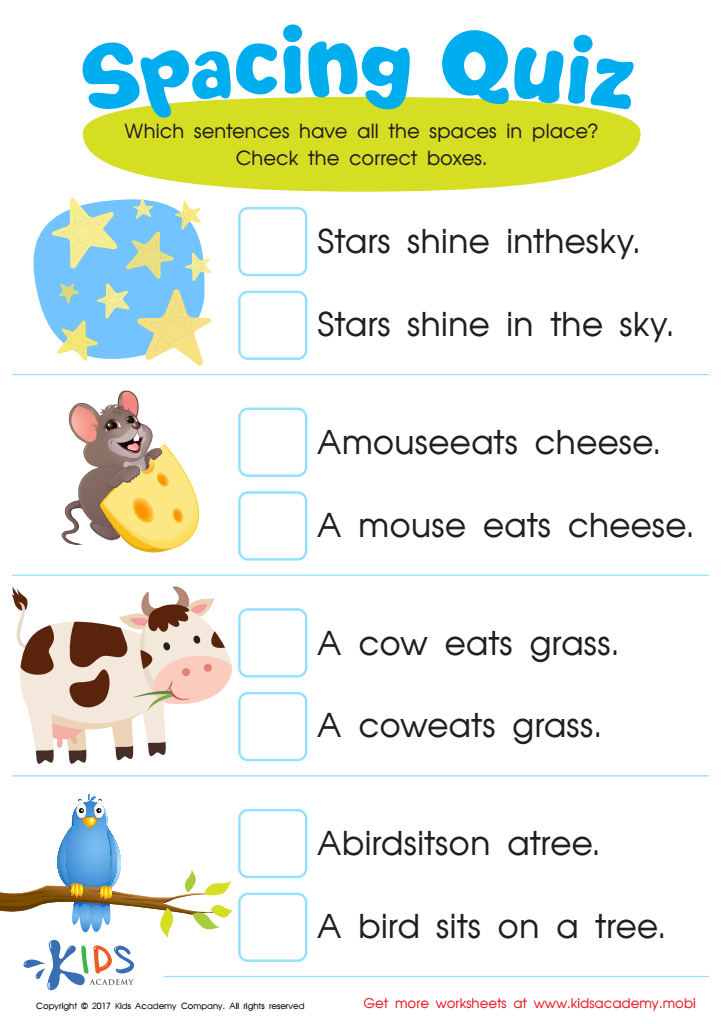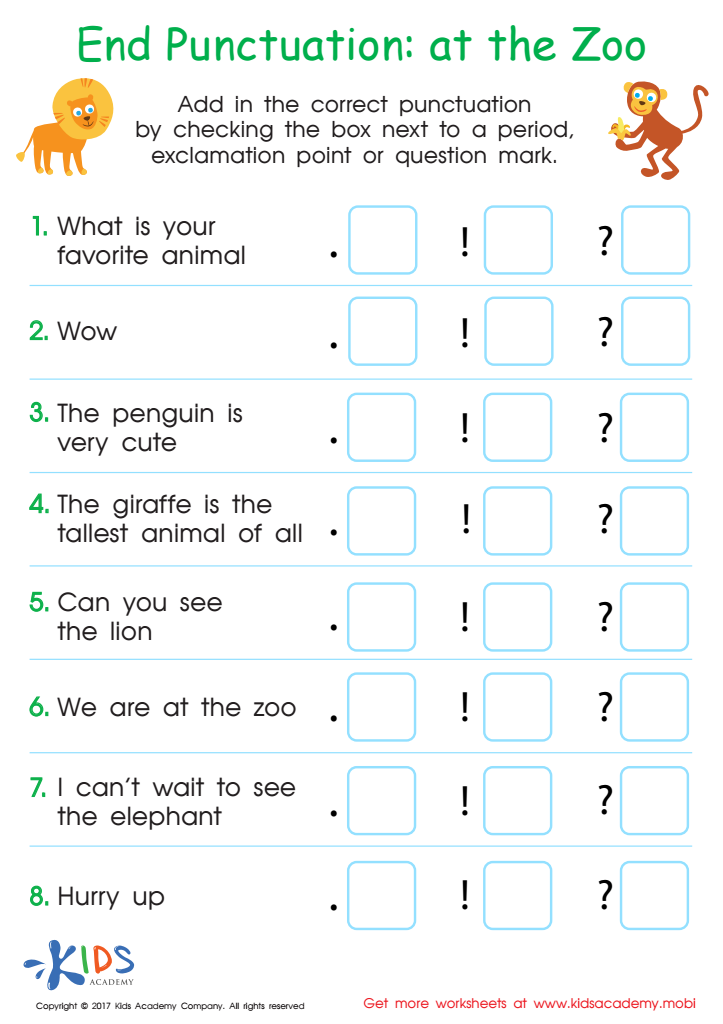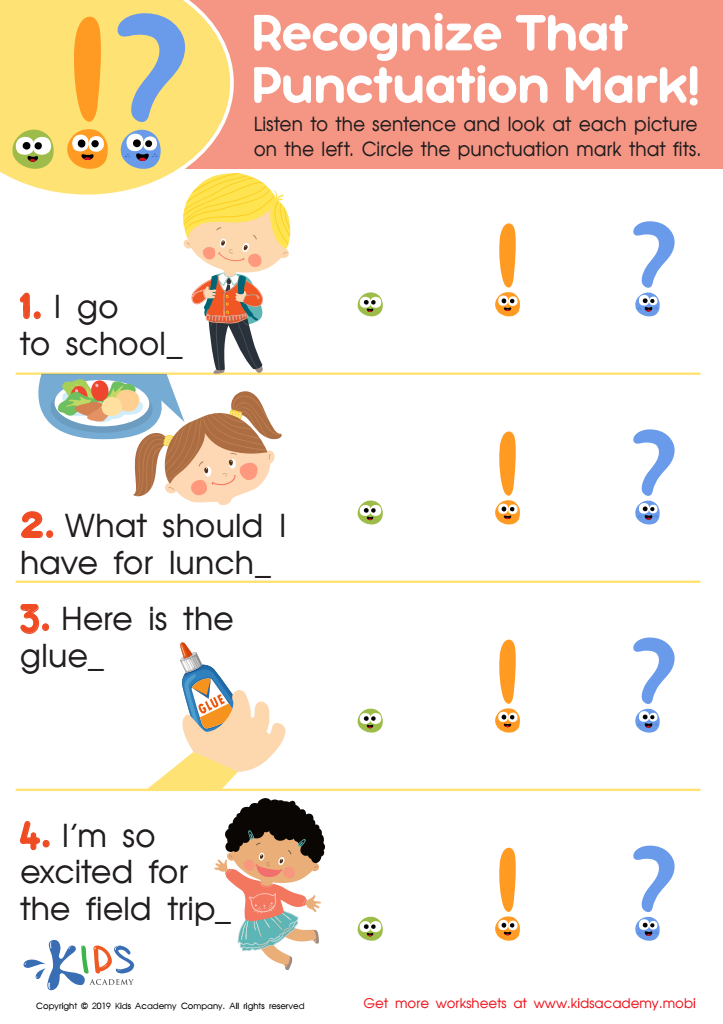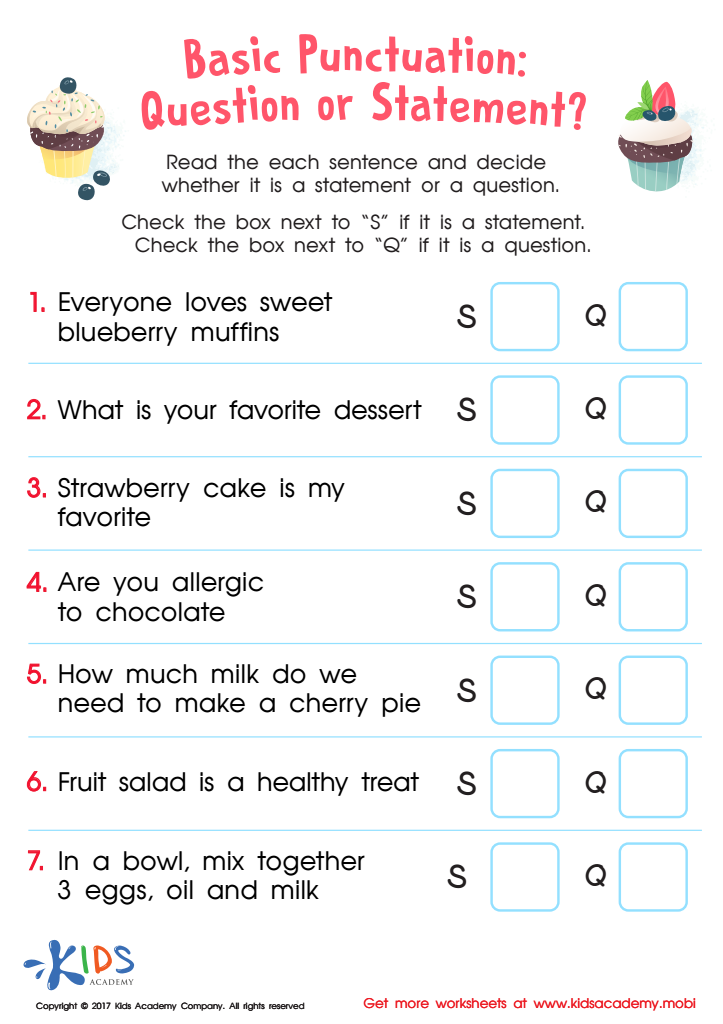Normal Punctuation Worksheets for Ages 3-5
4 filtered results
-
From - To
Introducing our Normal Punctuation Worksheets, expertly crafted for Ages 3-5! Dive into the world of commas, periods, and question marks with our engaging and colorful worksheets, meticulously designed to cater to young learners. These resources are the perfect stepping stone into the realm of writing and reading, enabling little ones to grasp the basics of normal punctuation in a fun and interactive way. Whether at home or in the classroom, our worksheets offer a solid foundation, fostering early literacy skills while keeping the learning process joyful. Embark on this educational journey with your child and unlock the doors to effective communication from an early age!


Spacing Quiz Worksheet


End Punctuation: At the Zoo Worksheet


Recognize Punctuation Marks Worksheet


Basic Punctuation: Question or Statement Printable
Normal punctuation worksheets for ages 3-5 serve as an invaluable tool in laying the foundation for young learners' reading and writing skills. At this critical stage of development, children are just beginning to grasp the basics of the language, making it the perfect time to introduce the concepts of punctuation. These worksheets are specifically designed to cater to the learning capabilities of children in this age group, utilizing engaging activities and colorful visuals to capture their interest.
Through normal punctuation worksheets, children ages 3-5 are gently introduced to the symbols that structure our written language—periods, commas, question marks, and more. These symbols might seem simple to adults, but for young learners, understanding and using them correctly is a significant step forward in their literacy journey. By starting early, children not only learn the rules of punctuation but also develop an appreciation for its role in clarifying meaning and creating expressiveness in written communication.
Furthermore, these worksheets provide a structured yet flexible approach to learning. They allow children to progress at their own pace, reinforcing their learning through repetition and gradually increasing complexity. This method ensures that young learners build confidence along with skill.
In summary, normal punctuation worksheets for ages 3-5 are not just about teaching punctuation; they're about opening a world of written communication to young minds, laying a solid foundation for their future academic success.
 Assign to My Students
Assign to My Students



















